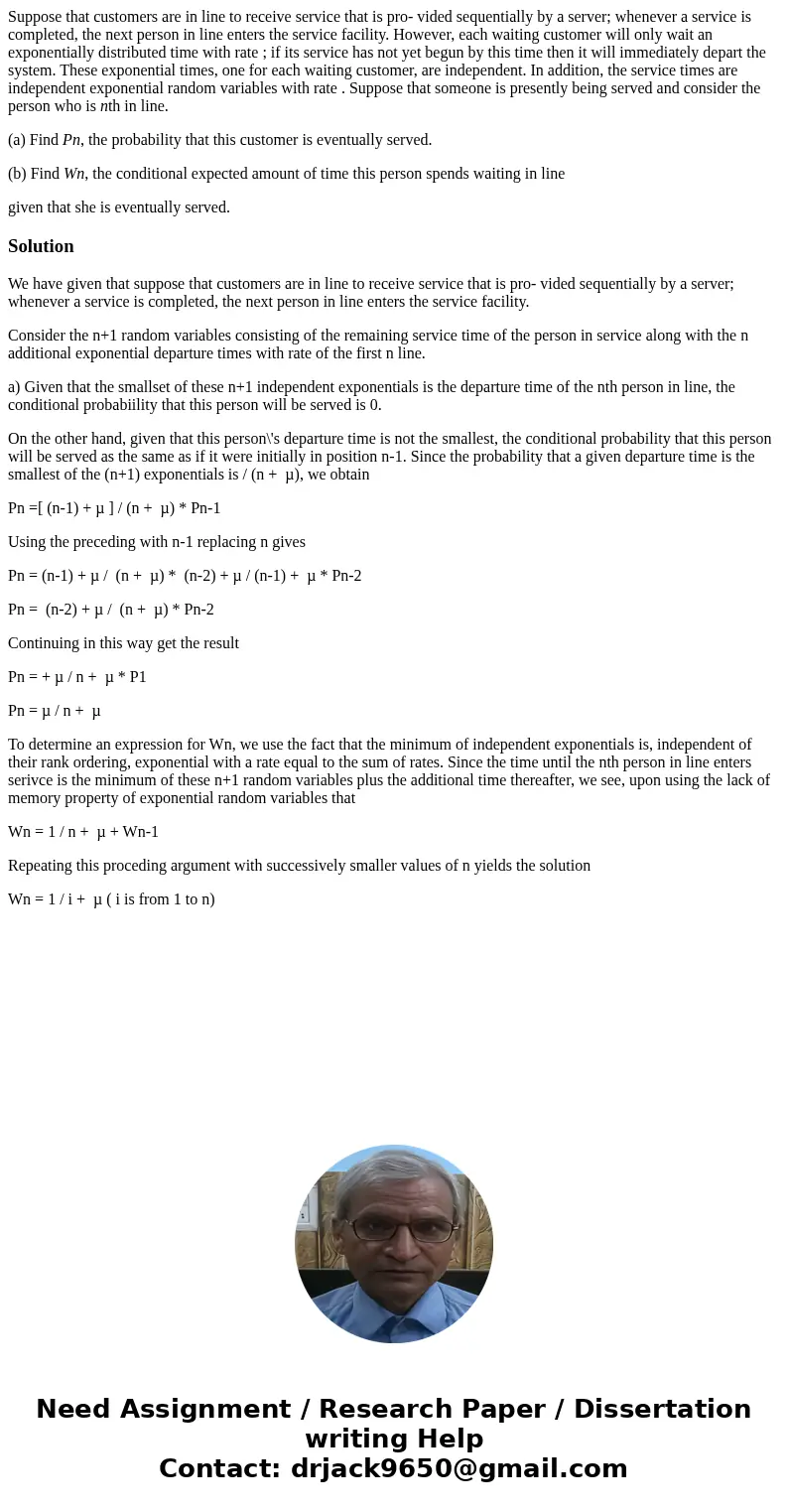Suppose that customers are in line to receive service that i
Suppose that customers are in line to receive service that is pro- vided sequentially by a server; whenever a service is completed, the next person in line enters the service facility. However, each waiting customer will only wait an exponentially distributed time with rate ; if its service has not yet begun by this time then it will immediately depart the system. These exponential times, one for each waiting customer, are independent. In addition, the service times are independent exponential random variables with rate . Suppose that someone is presently being served and consider the person who is nth in line.
(a) Find Pn, the probability that this customer is eventually served.
(b) Find Wn, the conditional expected amount of time this person spends waiting in line
given that she is eventually served.
Solution
We have given that suppose that customers are in line to receive service that is pro- vided sequentially by a server; whenever a service is completed, the next person in line enters the service facility.
Consider the n+1 random variables consisting of the remaining service time of the person in service along with the n additional exponential departure times with rate of the first n line.
a) Given that the smallset of these n+1 independent exponentials is the departure time of the nth person in line, the conditional probabiility that this person will be served is 0.
On the other hand, given that this person\'s departure time is not the smallest, the conditional probability that this person will be served as the same as if it were initially in position n-1. Since the probability that a given departure time is the smallest of the (n+1) exponentials is / (n + µ), we obtain
Pn =[ (n-1) + µ ] / (n + µ) * Pn-1
Using the preceding with n-1 replacing n gives
Pn = (n-1) + µ / (n + µ) * (n-2) + µ / (n-1) + µ * Pn-2
Pn = (n-2) + µ / (n + µ) * Pn-2
Continuing in this way get the result
Pn = + µ / n + µ * P1
Pn = µ / n + µ
To determine an expression for Wn, we use the fact that the minimum of independent exponentials is, independent of their rank ordering, exponential with a rate equal to the sum of rates. Since the time until the nth person in line enters serivce is the minimum of these n+1 random variables plus the additional time thereafter, we see, upon using the lack of memory property of exponential random variables that
Wn = 1 / n + µ + Wn-1
Repeating this proceding argument with successively smaller values of n yields the solution
Wn = 1 / i + µ ( i is from 1 to n)

 Homework Sourse
Homework Sourse